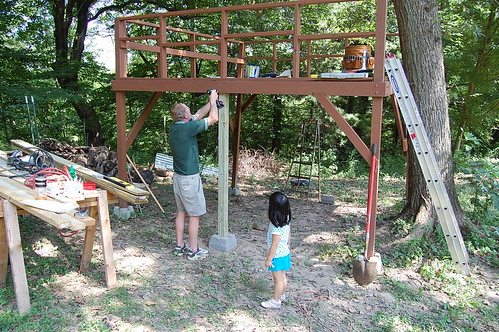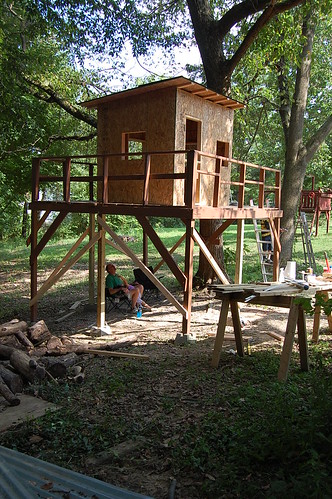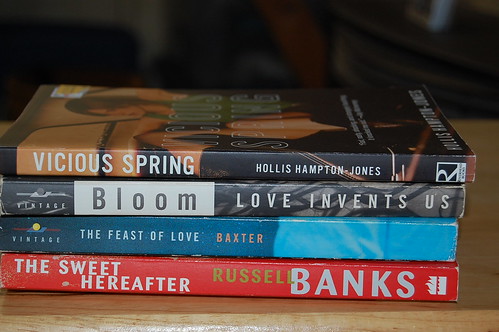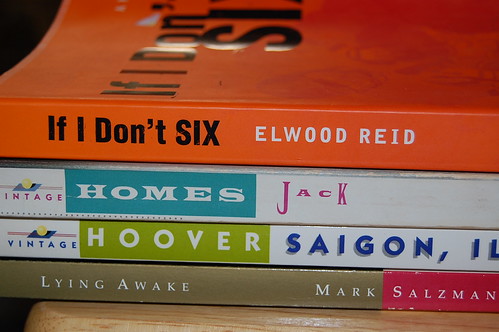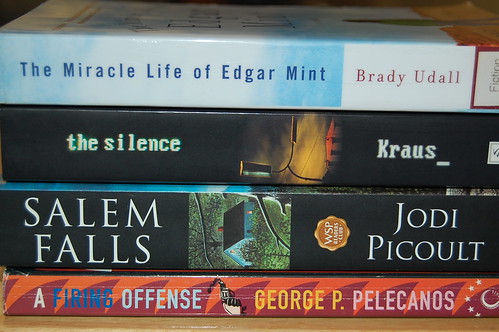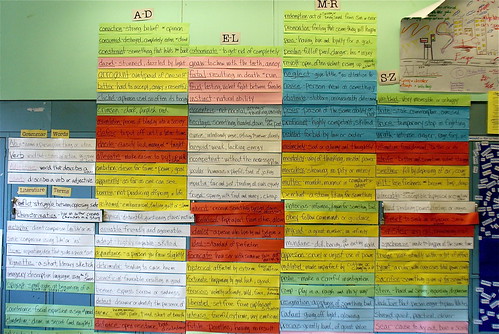1. You don’t have to have a precise plan.
When you start a project, you don’t need an exact plan, as long as you have a rough idea of what you think the final product should look like at the end.
Our tree house plan was sketched out on 2 pieces of graph paper on the first morning of construction and provided all of the necessary info to complete the project.
If you are stuck on a writing project: Get a sheet of paper, even a plain piece of paper, and set a timer for 15 minutes and write down everything you can think of about the project. Feel free to MindMap the idea, cut and paste words and pictures from other sources, ask questions, etc. Add more pages if necessary. Use this as the basis of your project.
2. You don’t have to take on a big project alone.
 |
| My cre |
3. The right tools make all of the difference in the world.

Even when writing it is important to know what tools you need and how to use them properly. Word choice, grammar, and when you must follow and break the rules are critical to getting a project done.
Knowing how to use the thesaurus, your word processor, research tools and methods, and grammar resources are almost as important as the writing process itself. So invest in the best tools your money can buy and learn how to use them.
4. You can get a lot done in a hurry if you have a goal.
Two days from wobbly deck to framed, walled and roofed tree house. They were 8 to 9 hour days, but consistent effort got us there. If you find a gap of time, whether it is 15 minutes, a couple of hours, or a couple of days, focus all of your effort on getting as much as you can done in that amount of time.
Working fast can give you the push and momentum to keep going, even when you hit a difficult spot.
5. Seek advice from experts.
My Dad is a mechanical genius. He can fix, build, renovate or refurbish anything. He taught people how to run and repair heavy equipment (cranes, bulldozers, graders, etc.) for over 30 years. He dug a pond in our backyard, built a barn, deck, and transformed a cinder block basement into a family room and bedroom. He has built gazebos and go carts, clocks, cedar chests and entertainment centers. There is nothing he cannot do with his hands.
Unfortunately, his genius apparently has skipped a generation. I am barely qualified to shop for myself at Home Depot. Any project I take on takes forever to finish, with many trips back and forth to the hardware store, with a lot of trial and error in between, to get a job done.
 |
| Picture of a man not qualified to shop for himself at Home Depot |
It often saves a lot of time and wasted effort. Most people are flattered and pleased when you come to them seeking advice and generous with their expertise. So seek out mentors and experts to help you along in your journey. People often forget that writing is, at heart, a collaborative art, where one writer’s work often builds upon or borrows from many other writers.
My Dad gave up two entire days to help me make a dream for my kids come true. I don’t think that they believed that I’d ever get the tree house done, and without his help it probably never would have happened. I can never thank him enough for this gift. Thank you Dad!

